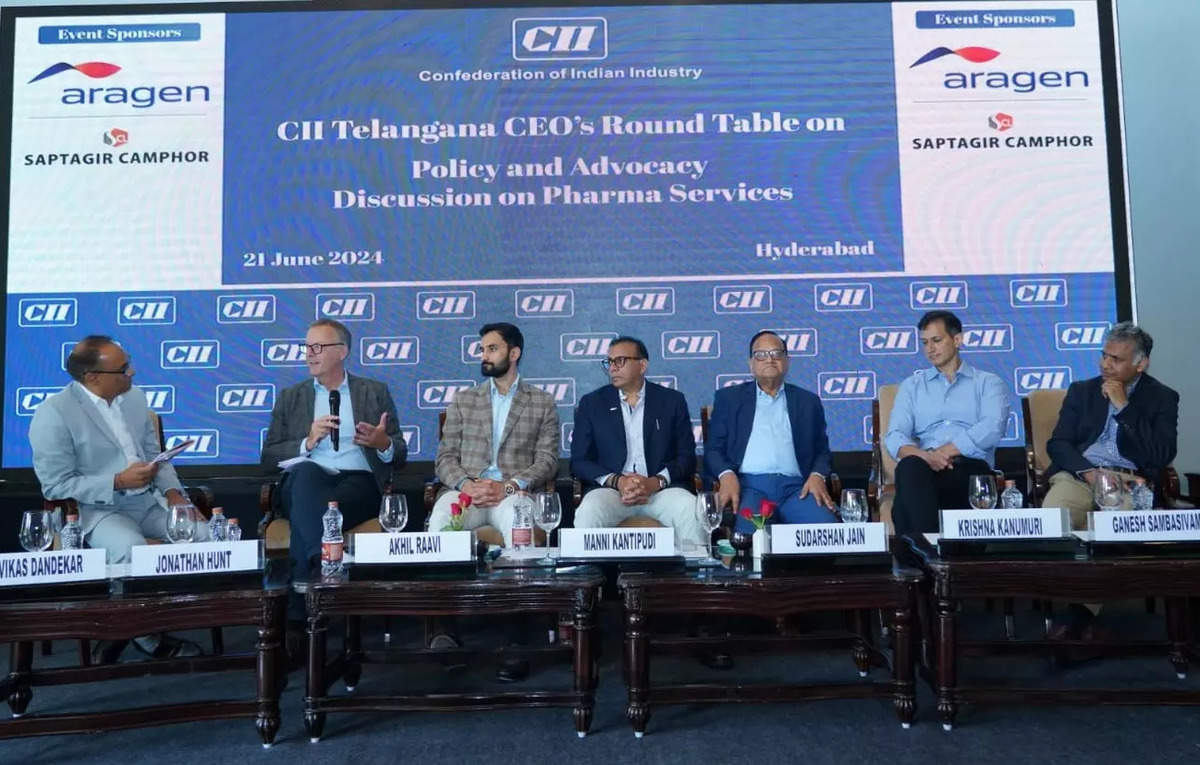For the next big leap, leading Indian CDMOs mull a new policy advocacy group, ET HealthWorld
Hyderabad: Leading Indian CDMOs (contract development and manufacturers organization) are close to forming a group with the aim for constructive policymaking and advocacy with the government and representations on international forums.
A recent meeting of select CDMO players in Hyderabad organized by the Confederation of India Industry (CII) deliberated on further scope of growth for the industry, the regulatory challenges and how Indian pharma services companies can look at new opportunities out of the emerging geopolitical environment.
Industry representatives specifically noted the US government’s recent moves revolving around the Biosecure Act as an interesting development for Indian drug makers. The US has sought to stop funding or working with certain companies that include China’s WuXi on allegations of leakage of data. WuXi has however defended its position and said it is fully committed to the highest quality and compliance standards. The controversy has been brewing over several months.
With those unfolding issues, the idea of a closed group of CDMOs cannot be overstated. More so when global drug makers are increasingly relying on Indian companies for partnerships to boost their discovery research programs. In many cases, such partnership extends to commercial stages over multiple years.
Over the last three decades, such strong collaborations have quietly spawned scores of companies that are deeply engaged as research partners with marquee innovator companies like Pfizer, Merck, Roche, and Bristol Myers Squibb.
Companies such as Syngene, Aragen, Jubilant Biosys, Aurigene, Anthem and Suven are investing in facilities and scientific talent for the next big leap and rival some of the big names like Swiss giant Lonza or US-based Catalent. Most recently, drug maker Lupin announced its plans to enter the
CDMO segment, an idea that reflects the ripe opportunities.
Aragen CEO Manni Kantipudi, a veteran in the CDMO business, noted he aspires to see the Indian CDMO sector touch USD10 billion over the next decade, growing at roughly 10x from the current combined turnover of USD1.5 billion.
Kantipudi however cautioned to spur growth, the government needs to draw a vision plan and create an ideal environment. He briefly spoke about plans of the Telangana state government to build small “pharma villages” that in his view could be dedicated to companies that work exclusively in partnership with global drug makers. “Such dedicated zones should be able to grant clearances that are not cumbersome or time-consuming,” he noted.
Jonathan Hunt, CEO, Syngene agreed delays in getting permissions for exports of commercialized products takes months and potentially results in waste of precious time. Typically, he said, if the partnership is for a blockbuster drug, it may result in loss of millions of dollars even if the delay is for
a few days.
Ganesh Sambasivam, co-founder, Anthem Biosciences raised how mandatory regulatory disclosures in India for exported products exposes confidential data to India’s international competitors, particularly the Chinese drug makers. “The Chinese are probably watching all the moves made by
their Indian counterparts,” he remarked.
Another issue that panel experts raised relates to an acute talent crunch. Syngene’s Hunt said for some of the important positions, he had to get talent from outside, and that needs to be addressed.
Speakers emphasized that China’s WuXi alone employs over 30000 people against a total of 20000 hired by all Indian CDMOs put together.
- Published On Jun 24, 2024 at 12:07 PM IST
Join the community of 2M+ industry professionals
Subscribe to our newsletter to get latest insights & analysis.
Download ETHealthworld App
- Get Realtime updates
- Save your favourite articles
Scan to download App
No Byline Policy
Editorial Guidelines
Corrections Policy
Source

